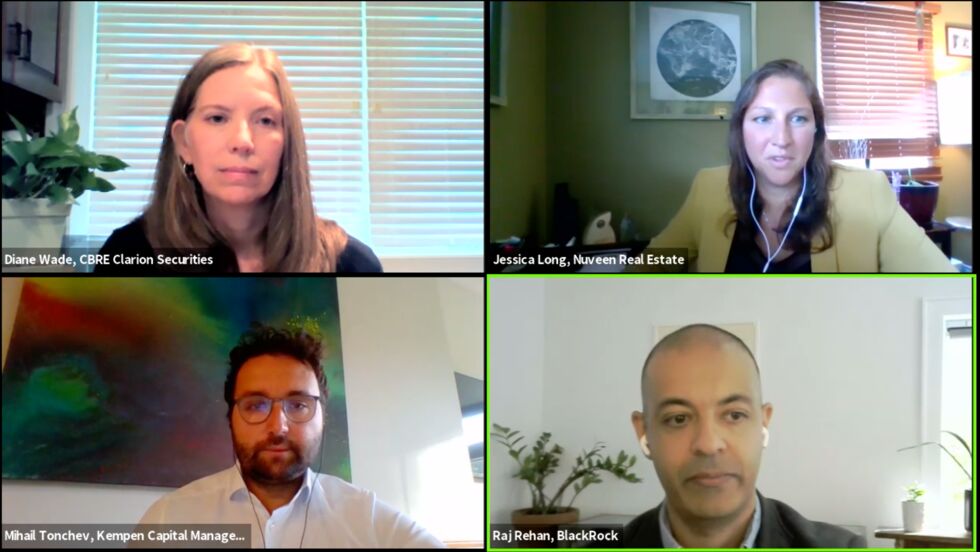REITs that are able to balance ESG efforts with financial performance can set themselves apart from their peers, according to a panel at Nareit’s REITworks: 2021 Virtual Conference .
The session, titled “What Makes a REIT a Sustainable Investment: Investors Share Their Perspectives,” was moderated by Jessica Long, head of sustainability, Americas Nuveen Real Estate, and included panelists:
- Rajan Rehan , Head of Real Estate Securities, Americas BlackRock
- Diane Wade , Principal, CBRE Clarion
- Mihail Tonchev , Senior Portfolio Manager, Kempen Asset Management“
For real estate, sustainability has always been an indicator of a high-performing asset, and over the past year, we have seen how external factors can have a huge impact on financial performance,” said Long. “Public and private companies are thinking about how they can demonstrate that they have processes in place to mitigate risk posed by climate change and the transition to a low carbon economy, while still fulfilling the duty to create value and meet return targets.”
The panel’s observations included:
- While many organizations have been integrating ESG into their processes for years, the panel agreed that it has only recently become top of mind. “What is new is how much it has entered the vision field of the management teams and colleagues from other investment firms,” said Tonchev. He went on to say how encouraging it is that REIT management teams are “stepping up their game” regarding ESG implementation and reporting and that the process has become more of a partnership.
- When it comes to ESG data sources, all of the panelists confirmed their companies use a combination of internal and external research. Data vendors such as GRESB (the Global Real Estate Sustainability Benchmark) and Sustainalytics are useful in procuring data and establishing metrics.
- With the European Union recently passing the Sustainable Finance Disclosure Regulations (SFDR) as a way to reduce greenwashing in sustainability disclosures, the panelists agreed that similar regulation will come to the United States. “It’s no secret that this is an area of focus for the current administration and the SEC. Europe is ahead on a timeline, but the U.S. is very much following,” said Rehan. “At this stage, it’s very much about transparency and consistency of disclosure on climate, developing a framework that enables comparability of data, and, ultimately, investability.”
- The panelists acknowledged that they are grading REIT management teams when it comes to climate risk. While recognizing that companies may have difficulty measuring physical risk and transition risk in portfolios, “we want to know that the companies are thinking about it, that they have a climate policy, that this is something that is important to them—that they are talking about this at the investment committee level,” said Wade.
- In regard to carbon emission reductions for REITs, at this point, investors expect companies to have committed to targets, and “it would be better if it were a net-zero target,” said Wade.
